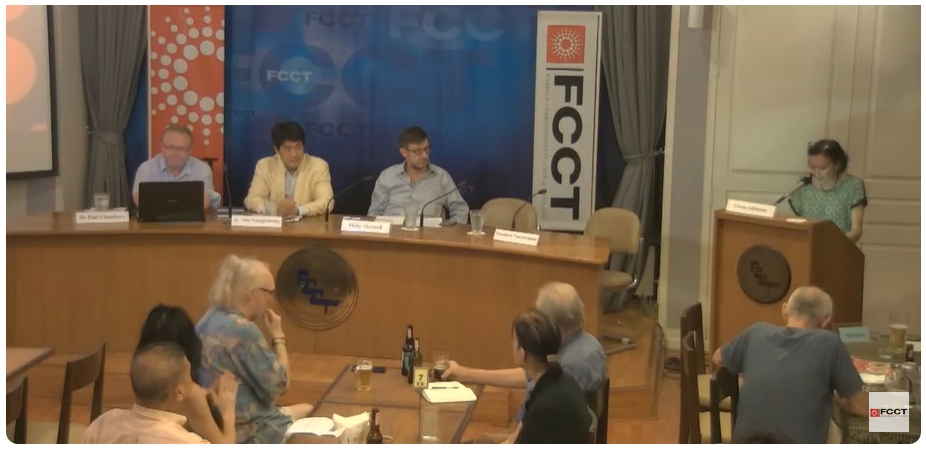
Asia is the world’s fastest-growing beer market, according to Euromonitor, but average per-capita beer consumption in Europe remains ahead of Asia. Overall, Asia overtook Europe and the Americas in 2007. In 2011, Asia consumed 67 billion litres of beer, compared to 57 billion in the Americas and 51 billion in Europe, according to the same source. A likely reason for the move toward beer in Asia is its growing young and increasingly prosperous urban population. Beer drinking is a reflection of growing affluence. As Nirgunan Tiruchelvam at Standard Chartered said: “Beer has a clearer correlation with strong economic growth. People…drink spirits when times are good and when times are bad.” (BBC, 6 September 2012) The book, edited by Paul Chambers and Nithi Nuangjamnong, examines ten countries: Japan, China, Japan, Myanmar, the Philippines, South Korea, Taiwan, Cambodia, Laos, Thailand and Vietnam. The last four of these will be the focus of the evening for the FCCT’s distinguished panel, all of whom worked on the project: Paul Chambers is a lecturer and special advisor at the Center of ASEAN Community Studies, Faculty of Social Sciences, Naresuan University, Thailand; and a senior research fellow at both the Cambodian Institute for Cooperation and Peace and the German-Southeast Asian Centre for Public Policy and Good Governance. Chambers is a graduate of Northern Illinois University in the US, and holds a PhD. in Political Science. He first came to Thailand as a US Peace Corps Volunteer in 1993, and has spent three decades in mainland Southeast Asia. He has published widely on democratization and civil-military relations in Southeast Asia (particularly Thailand and Cambodia) as well as the political economy of the Mekong region. Nithi Nuangjamnong is an assistant professor at the Department of Political Science and Public Administration, Faculty of Social Sciences, Naresuan University. His publications cover a wide range of topics, including comparative politics, international political economy, and East Asian studies. His recent books include Comparative Politics: Theories, Concepts and Approaches (co-authored with Professor Chaiwat Khamchoo, Chulalongkorn University Press, 2016, in Thai); and Populism in an Unequal World (King Prajadhipok Institute Press, 2020, in Thai). Martin Rathie is a graduate of the University of Queensland and an Australian researcher who has lived and worked in Laos for nearly two decades. He first visited there in the mid-1990s to conduct research for his honors thesis, and continued to visit frequently while working in Northeast Thailand as an Overseas Service Bureau volunteer. After commencing postgraduate studies in Australia and conducting archival research in France, Rathie returned to Laos on a permanent basis in 2004. He worked at Vientiane College for 10 years, and was an advisor to the President Kaysone Phomvihane Museum, the President Souphanouvong Memorial and the Lao News Agency. He has authored various works on Lao politics. Nicholas Chapman is a British researcher, writer, and editor with a fervent interest in the politics and political economy of Vietnam, its revolutionary history and the country’s foreign relations. He has spent the last 14 years living in Japan, with many prolonged stints of field research in Vietnam during that time. Chapman has authored articles on Vietnam’s evolving foreign policy since Doi Moi, as well as contemporary issues dealing with infrastructure projects, Vietnam’s plethora of free trade agreements and security issues. He obtained his MA and PhD from the International University of Japan, and is currently based at Tohoku University in Sendai. Moderator Gwen Robinson, FCCT past president and Nikkei Asia editor at large.